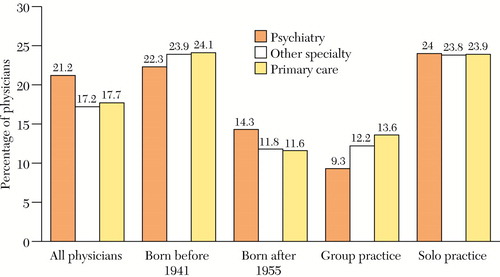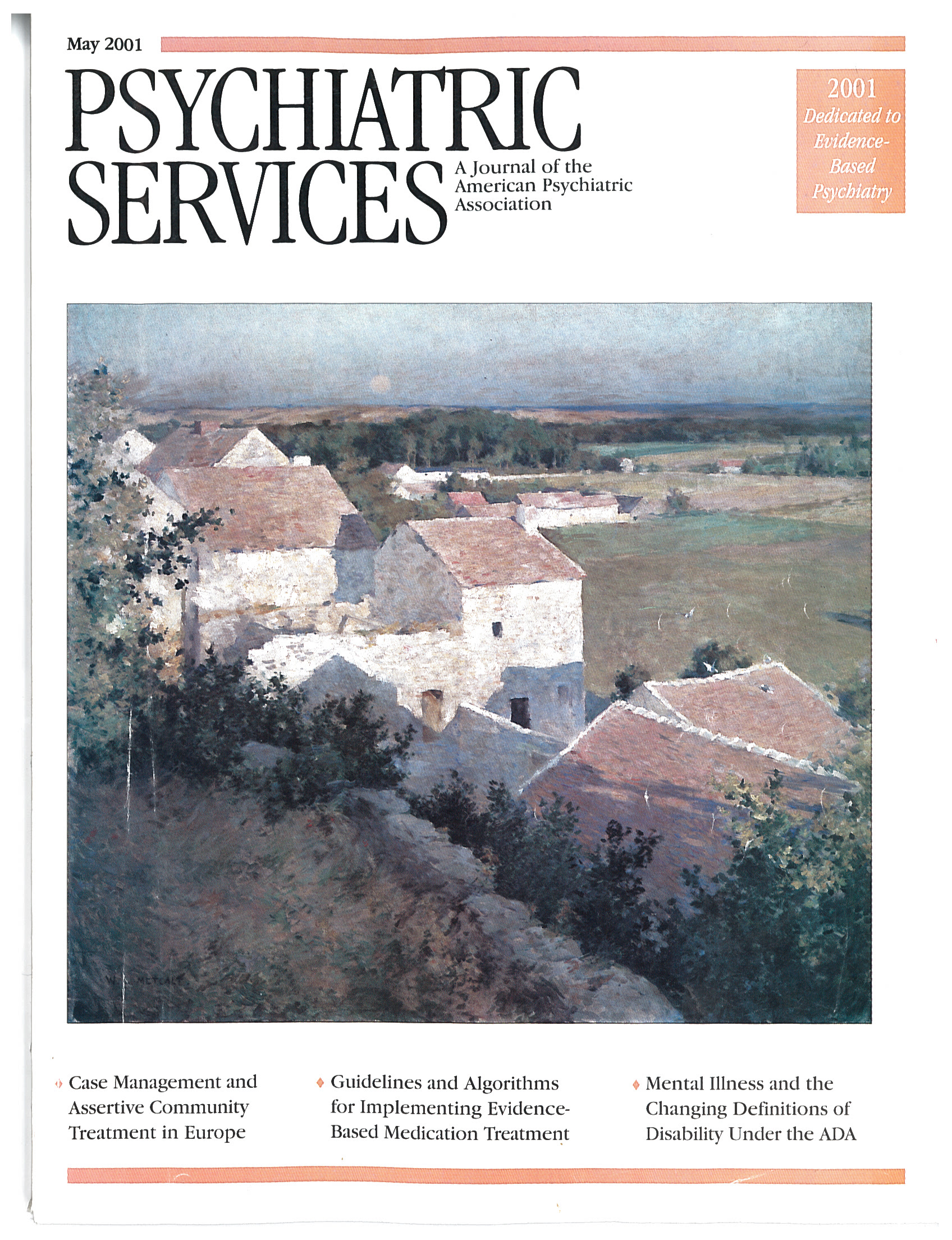Datapoints: Are Psychiatrists More Dissatisfied With Their Careers Than Other Physicians?
The growth of managed care has been associated with a decrease in physicians' professional satisfaction. The role of managed care has been particularly contentious in psychiatry, largely because of the development of specialized managed behavioral health organizations (carve-outs). Many believe that the effects of managed care have been more adverse among psychiatrists.
This column compares career satisfaction of psychiatrists, other medical specialists, and primary care physicians. The data come from the Community Tracking Study (CTS) physician survey, which surveyed active U.S. physicians between August 1996 and August 1997. A total of 623 psychiatrists completed interviews, compared with 4,708 other medical and surgical specialists and 7,197 primary care physicians.
In Figure 1, the first set of bars shows the percentage by specialty of physicians who reported being very or somewhat dissatisfied with their career in medicine. Overall, psychiatrists were significantly more likely to be dissatisfied with their medical career than other specialists (z=2.3, p=.023) and primary care physicians (z=2; p=.044).
This difference is largely a cohort effect due to the much larger proportion of older physicians in psychiatry than in other medical fields. About one in three practicing psychiatrists in the survey were born before 1941, compared with one in five other physicians.
After the analysis controlled for physician cohort, no statistically significant differences across specialties were found. The second and third sets of bars in Figure 1 show the oldest and youngest groups. All older physicians were much more likely to be dissatisfied with their medical career than all younger physicians, but no significant difference was found across specialty within each age cohort. Younger psychiatrists appear to be slightly more dissatisfied than other younger physicians, but the difference was not statistically significant in a logistic regression comparing younger psychiatrists to other younger physicians.
Age was correlated with practice setting, but unique differences were also found by practice setting. In particular, physicians in solo or two-physician practices were significantly more likely to be dissatisfied with their medical career than physicians in other practice settings, even after the analysis controlled for physician age. Psychiatrists were much more likely to work in solo or two-physician practices (56 percent) than other specialists (41 percent) or primary care physicians (38 percent) (p<.001 for both comparisons). However, no significant differences in satisfaction were found across medical specialties within each type of practice setting. The fourth and fifth sets of bars in the figure show the results for group and solo practices. No significant differences were found between men and women after the analysis controlled for age cohort and practice setting.
In summary, although psychiatrists in the survey expressed more dissatisfaction than other physicians, almost all those differences disappeared when age, and to a lesser extent practice setting, were taken into account. Thus other factors, such as differential managed care effects unique to psychiatry, cannot be responsible for higher professional dissatisfaction in psychiatry.
Dr. Sturm is affiliated with the Center on Managed Care for Psychiatric Disorders, a joint program of the University of California, Los Angeles, and Rand, 1700 Main Street, Santa Monica, California 90401 (e-mail, [email protected]). Harold Alan Pincus, M.D., and Terri L. Tanielian, M.A., are editors of this column.

Figure 1. Percentage by specialty of physicians who reported being dissatisfied with their career in a survey of 12,528 active US. physicians, by overall sample, age, and practice setting



